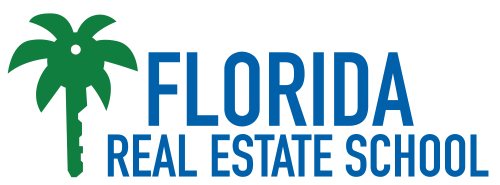70/30 vs. 100% Commission
You’ve passed your Florida real estate exam, activated your license, and now you’re facing one of the most important—and confusing—decisions of your early career:
Which brokerage should you join?
This choice can shape your first few years as an agent, impacting your income, learning curve, confidence, and even long-term success. With so many commission models, hidden fees, and promises floating around, it's easy to feel overwhelmed. That’s why we’ve created this transparent, easy-to-understand guide just for new Florida agents like you.
Step 1: Understand the Split Commission Model (e.g., 70/30, 60/40)
In a split commission model, you share each commission with your broker. A 70/30 split means you keep 70% and your brokerage keeps 30%. Some common variations include:
• 60/40 (you keep 60%)
• 80/20 (you keep 80%)
• Graduated splits (start low, increase with performance)
What You Might Get in Return:
• Training & Mentorship: Daily classes, broker coaching, team support
• Office Space: Physical location for meetings, printing, etc.
• Marketing Tools: CRMs, websites, signage, business cards
• Lead Generation: Referrals or buyer/seller leads
This model is ideal if you’re just starting and want structure, support, and real hands-on learning.
Step 2: Know the 100% Commission with Flat-Fee Model
In this model, you keep 100% of the commission but pay a flat transaction fee (e.g., $250–$500) or a monthly office fee. While it sounds appealing, it’s not always the best fit for beginners.
Pros:
• Higher earning potential per deal
• Greater autonomy and flexibility
Cons:
• Little to no training or mentorship
• You pay for everything: tech tools, signs, marketing
• You generate your own leads (no company-provided business)
This model works well for experienced agents or highly motivated self-starters with a solid network.
Step 3: Look Out for Hidden Fees
Regardless of the commission split, you must ask about fees—they can add up quickly and cut into your earnings.
Here’s what to watch for:
• Franchise Fees: A percentage taken from each deal, even after your split.
• E&O Insurance: Mandatory Errors & Omissions insurance fees, billed monthly or annually.
• Desk Fees: Charged for using office space, even if you work remotely.
• Technology Fees: CRM, website, email, or intranet access charges.
Pro tip: Always ask for a written breakdown of all monthly, annual, and per-transaction fees.
Step 4: Ask These 15 Questions When Interviewing a Broker
Interviewing a brokerage is just like a job interview—but you’re the one in control. Ask these questions to get clarity:
1. What’s the commission split? Are there caps or bonuses?
2. What are the monthly or per-transaction fees?
3. Do you charge franchise fees or admin fees?
4. Is E&O insurance included? What does it cost?
5. What kind of training do you offer new agents?
6. Will I have access to a mentor or team leader?
7. Are leads provided? If so, how are they distributed?
8. What technology tools are included?
9. Do you offer marketing support (flyers, social media, signs)?
10. Is office space available? Is it required?
11. What are your expectations for agent performance?
12. How often are sales meetings or trainings held?
13. Can I build a team in the future?
14. What’s the culture of your office like?
15. Do you offer continuing education or post-licensing help?
Take notes and compare answers—it’s easier to make a clear decision when you have facts, not fluff.
Step 5: Which Model Is Right for You? A Self-Assessment Guide
Here’s a quick way to assess which brokerage model fits your current needs:
1. If you need mentorship and training → choose a split model (e.g., 70/30 or 80/20).
2. If you want to maximize every commission → choose a 100% commission model.
3. If you generate your own leads with ease → try a 100% or hybrid model.
4. If you prefer structure and team guidance → look for a traditional split brokerage.
5. If you’re on a tight budget right now → pick a brokerage with low upfront fees.
There’s no one-size-fits-all answer. What matters is finding the right fit for your goals, skills, and learning style.
Final Thoughts
Choosing your first real estate brokerage in Florida is a big step, but it doesn’t have to be a blind leap. Now that you understand how commission splits work, what to expect from each model, and the red flags to look for, you’re in a powerful position to make an informed choice.
Remember: The right brokerage is more than just a percentage—it’s your launchpad.
At Florida Real Estate School, we prepare our students not just to pass the exam but to build a thriving career. Keep us in mind as your trusted partner as you grow in this exciting industry.



